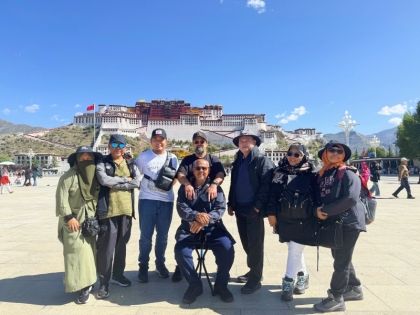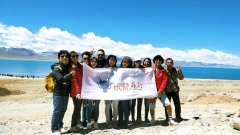Tibet is a land of breathtaking landscapes, rich traditions, and warm-hearted people. While many locals in cities like Lhasa can communicate in Mandarin Chinese (and some in English), learning a few basic Tibetan phrases can greatly enhance your travel experience. Speaking even a little of the local language shows respect, helps you connect with people, and can make navigating rural areas much easier.
Why Learn Tibetan Before Your Trip?
-
Build Connection: Using Tibetan words often makes locals smile and opens the door to more genuine interactions.
-
Cultural Respect: Showing interest in the local language demonstrates appreciation for Tibetan traditions.
-
Practical Benefits: In remote towns and villages, English is rare, and even Mandarin might not be widely understood.
-
Memorable Experiences: Trying the language can lead to unique conversations, invitations for tea, or insights into local life.
Key Phrases Every Traveler Should Know
Greetings
-
Hello – Tashi Delek (བཀྲ་ཤིས་བདེ་ལགས།)
-
How are you? – Kherang kusug de po yin pe?
-
I’m fine – Nga kusug de po yin
Politeness
-
Thank you – Thuk-je che
-
You’re welcome – Khu-che nang
-
Please – Khu-che (often used with gestures)
Everyday Travel Phrases
-
Yes – Yin
-
No – Min
-
How much? – Ga-tsa re?
-
Where is…? – … ga-pa yin?
Useful for Dining
-
Tea – Cha
-
Water – Chu
-
I am vegetarian – Nga sha ma re
Pronunciation Tips
Tibetan pronunciation can be tricky at first, but here are a few pointers:
-
The letter “t” is often softer than in English.
-
“Ng” sounds like the end of the word “song.”
-
Many words have silent consonants at the beginning — listen carefully to locals.
-
Don’t worry about perfect pronunciation; effort matters more than accuracy.
Language & Cultural Etiquette
-
Always greet elders first in a group.
-
Use two hands or your right hand when giving or receiving items.
-
Avoid pointing at people or religious objects with your finger; use an open hand instead.
-
When speaking Tibetan, a smile and respectful tone go a long way.
Learning Resources
-
Phrasebooks: Carry a small Tibetan travel phrasebook for quick reference.
-
Apps: Some language apps offer basic Tibetan lessons.
-
Local Guides: Hiring a Tibetan-speaking guide not only helps with translation but also deepens your cultural understanding.
Conclusion
Even if you only learn a handful of Tibetan phrases, the effort will make your journey more rewarding. From warm smiles to unexpected kindness, speaking the local language bridges the gap between visitor and host. As you explore Tibet’s stunning landscapes and ancient monasteries, a few well-chosen words can open the door to authentic, unforgettable experiences.













